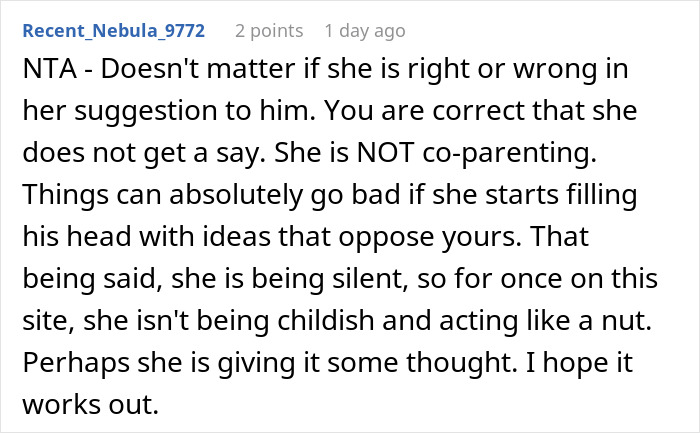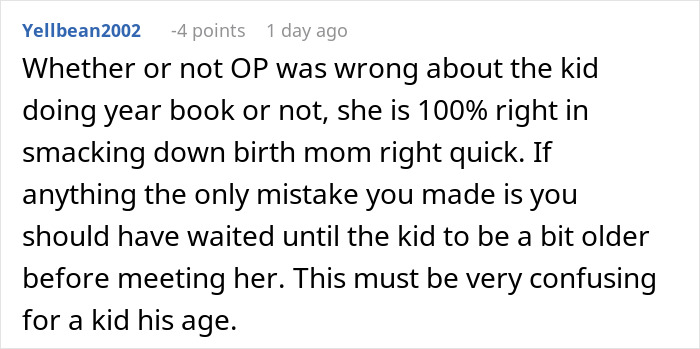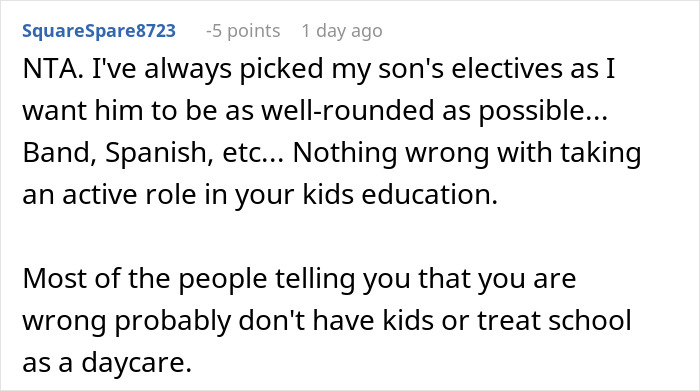It’s no surprise that parents make certain decisions for their children, especially when they’re at a young age. But at some point, kids start making up their mind by themselves, even if it’s something arguably insignificant, such as choosing their outfit for the day.
For this redditor, decision time got even more complicated when his son’s birth mother offered her two cents in parenting. When it was time for his 11-year-old son to pick an elective class at school, the woman tried standing up for what she believed the boy wanted, but his dad said she had no say in the matter.
Until kids reach a certain age, parents tend to make the majority of decisions for them
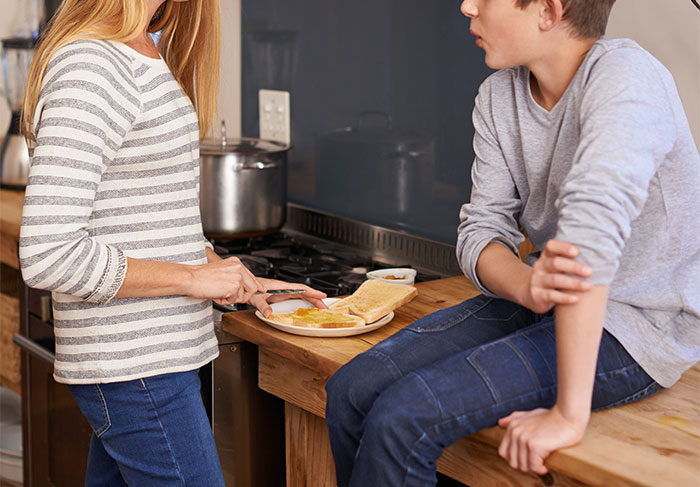
Image credits: YuriArcursPeopleimages (Not the actual photo)
This 11-year-old had to choose an elective class in school, which caused disagreements between his dad and his birth mother
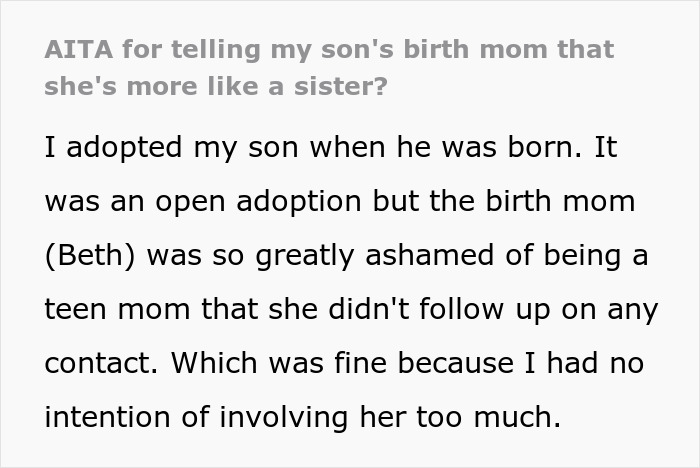

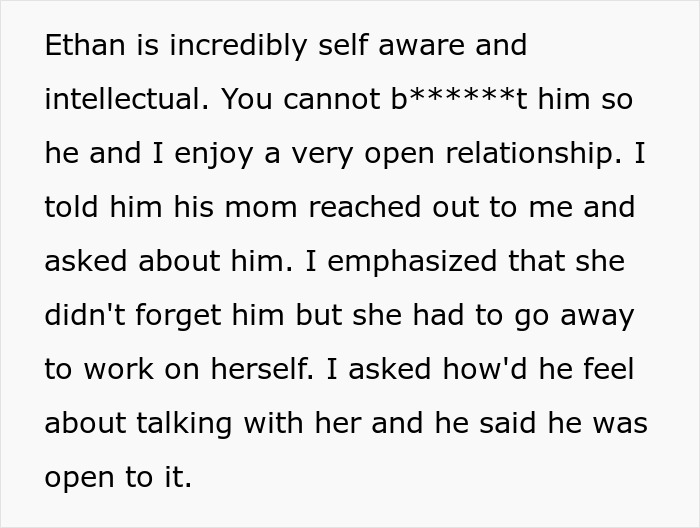


Image credits: Zinkevych_D (Not the actual photo)
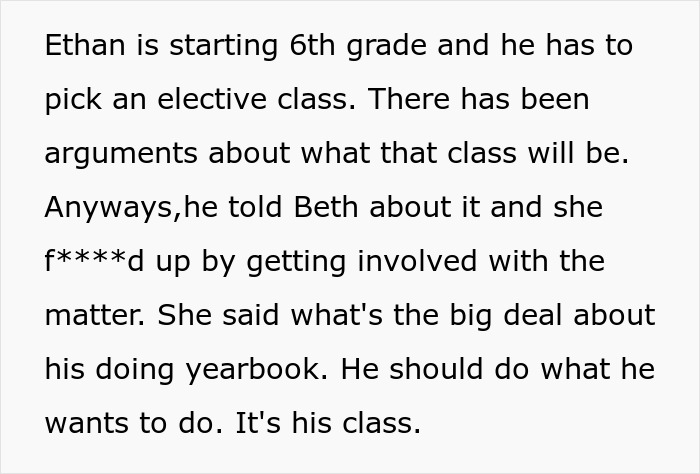
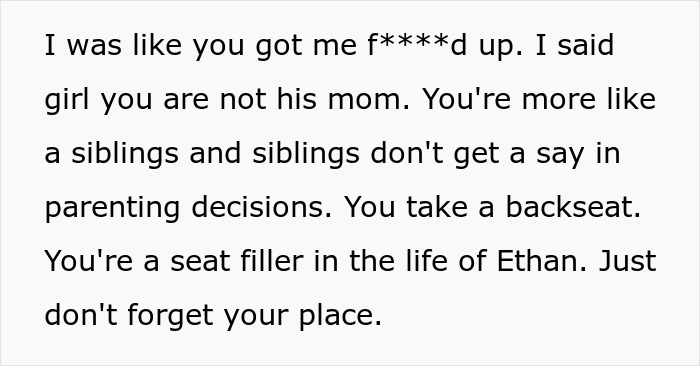
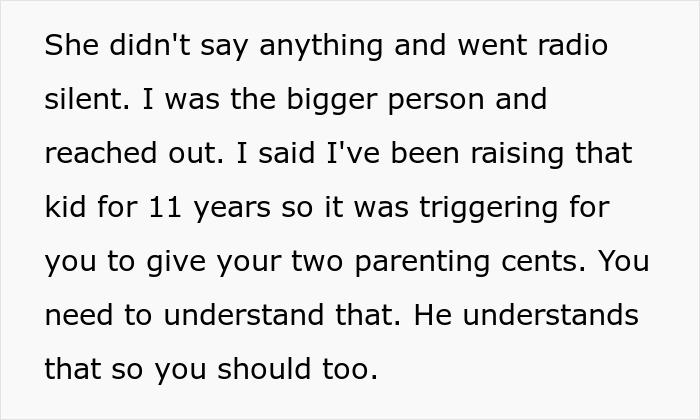

Image credits: Long_Shape_4713
It’s important to let children make some decisions on their own
When they first enter this world, the little bundles of joy are fully dependent on other people; mainly their parents. Moms and dads look after them, feed them, change them, all the while choosing everything from food to types of games that they think are best.
Parents making decisions for their children typically lasts quite a few years, until eventually, kids take over the reins of their lives by starting to make their own decisions and, most importantly, learning from the outcomes. Experts suggest that it’s crucial to let kids experience the consequences of their actions or reap the benefits of the decisions they made, as that’s how they develop decision-making skills necessary in all further stages of their lives.
According to the Child Mind Institute, the earlier a parent can help kids be thoughtful about the impact of their decisions, the better. A clinical social worker, Grace Berman, LCSW, told the Institute that one of the best ways to start is “by giving them two options, both of which you are okay with them selecting.”
“As they get older, outline what everyday choices you’d like your child to be responsible for,” Berman suggested. “Make a list and work with your child to shift the responsibility from you to them. The more decisions they can make, the more practice they will have.” Allowing your child to practice decision making will help them develop the skill necessary for bigger decisions in the future, be it personal, professional, or otherwise.
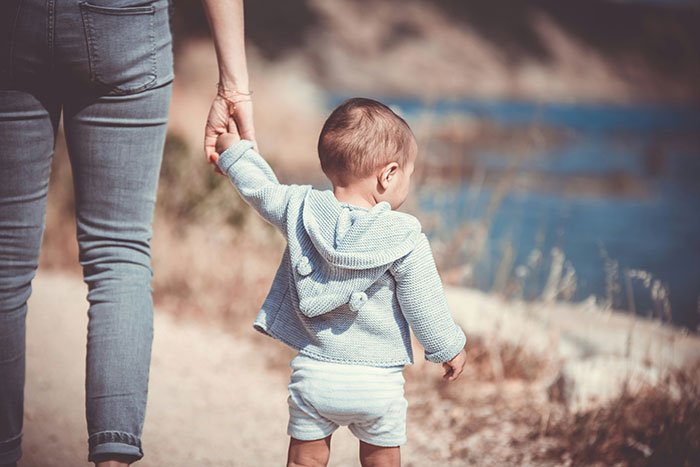
Image credits: Guillaume de Germain (Not the actual photo)
Adoptive and birth parents might not see eye-to-eye on certain issues
The OP seemingly let his child make some decisions on his own, letting him choose whether or not he wanted to talk to his birth mom, for instance. However, when it came to schooling and choosing an elective class, he didn’t seem to be as flexible, which some redditors in the comments criticized.
But that wasn’t the only thing fellow netizens pointed out. The story seemingly split them into camps in regards to whether or not the man was a jerk to his son’s biological mother. While some said he was too harsh with the woman, others believed she shouldn’t have been sharing her “two parenting cents”.
Needless to say, no two parents raise their children the same way, not to mention the complexity of a situation when there are biological and adoptive parents involved. The latter typically put a lot of time and effort into creating a connection with their child and parent them the way they feel is best; and while some birth parents care for the child very much, too, them trying to parent the little one can become a cause for disagreements.
In the OP’s case, the birth mom was arguably standing up for what the boy expressed that he wished rather than parenting the child; however, that, too, caused a conflict between the two parents. But out of the two of them, fellow redditors seemingly sided more with the birth mom; they shared their views in the comments section.
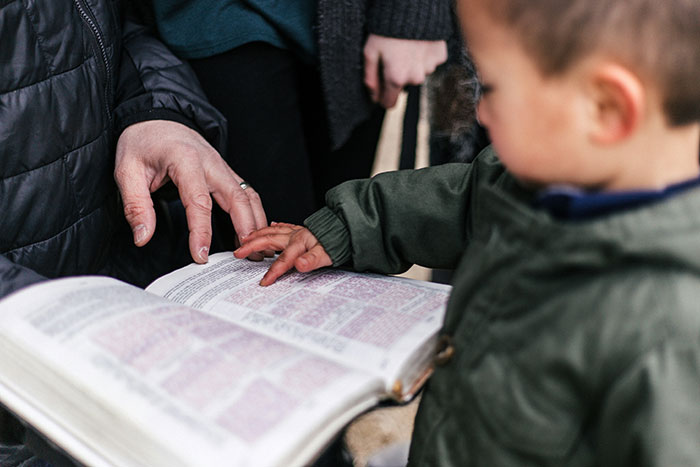
Image credits: Priscilla Du Preez (Not the actual photo)
The majority of fellow redditors seemed to think that the OP didn’t handle the situation quite well
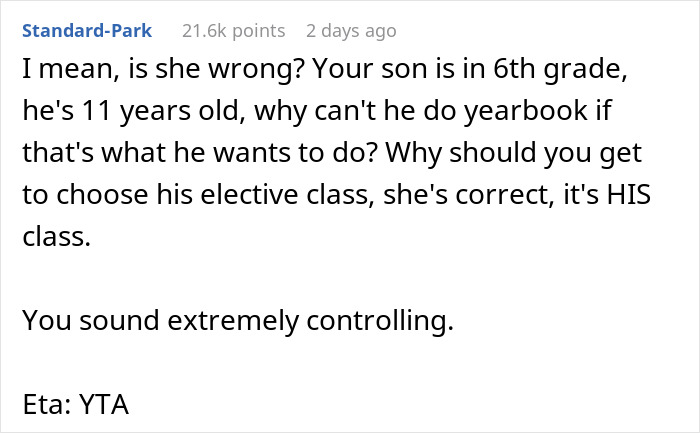
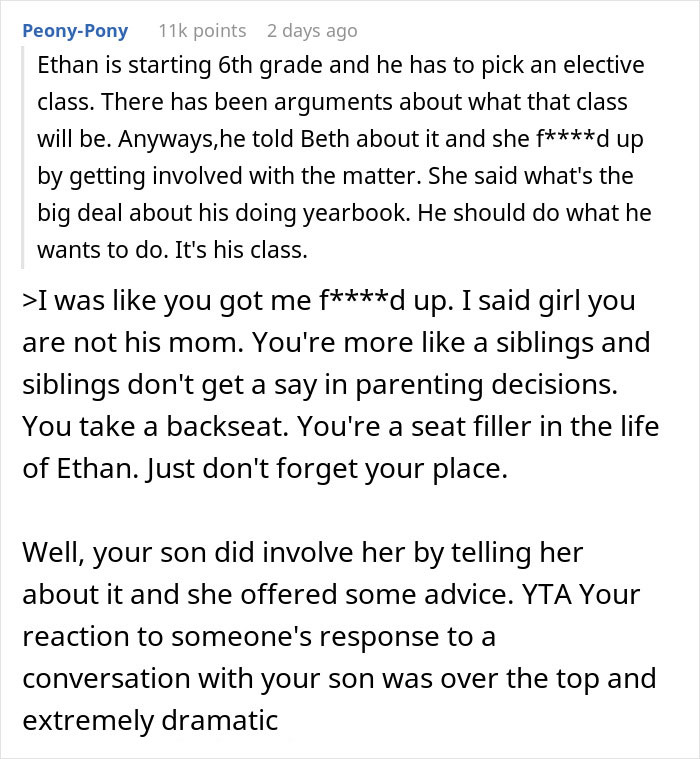
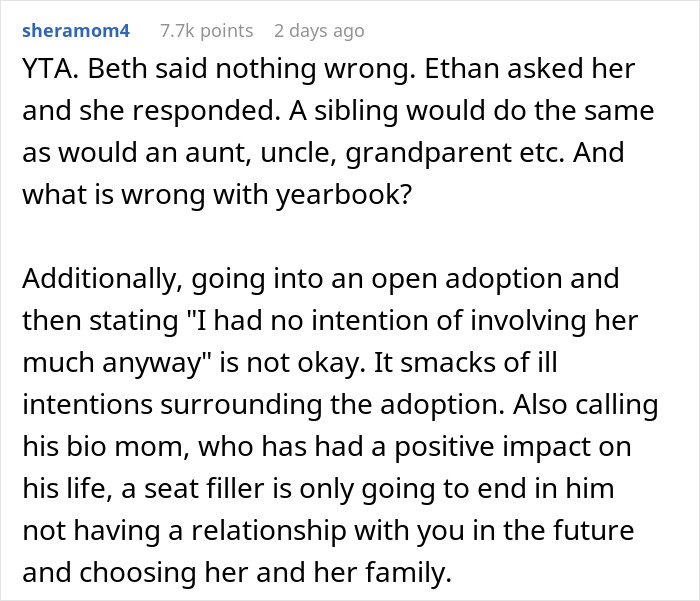

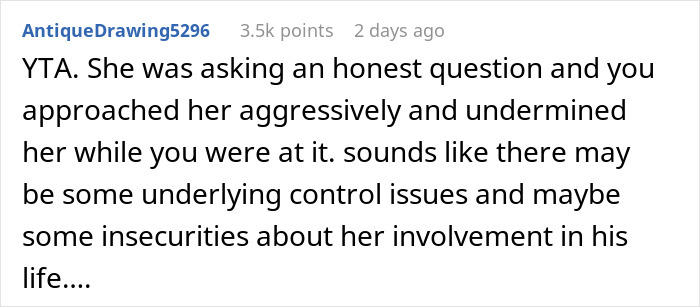
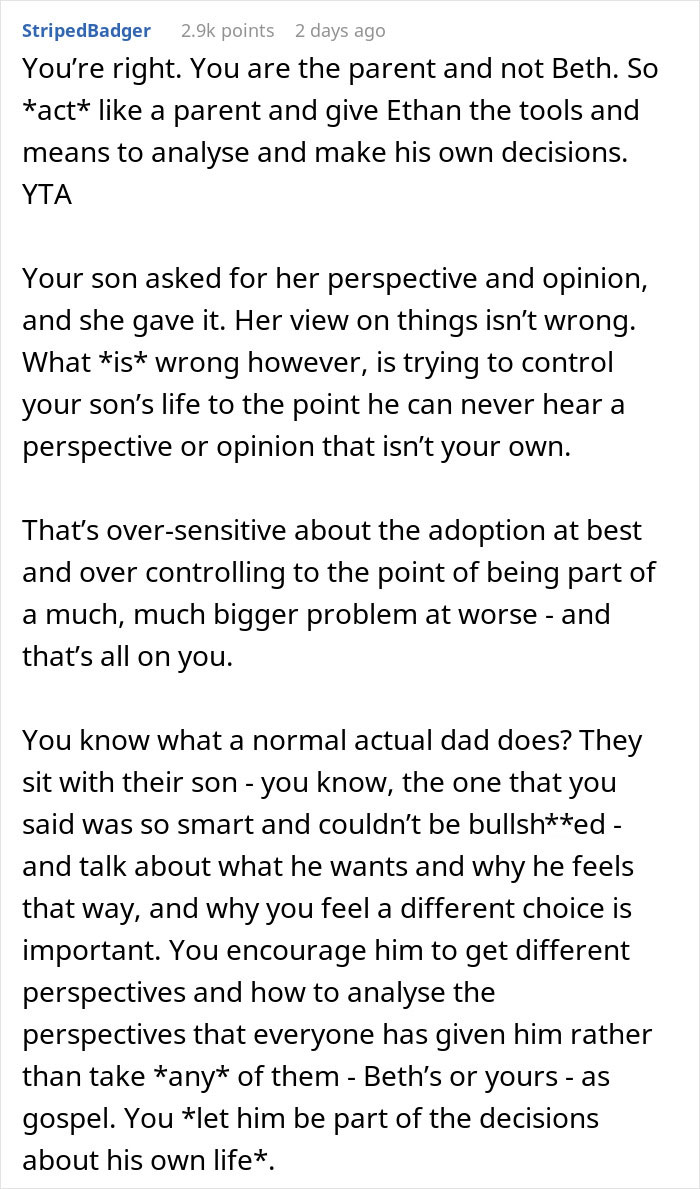
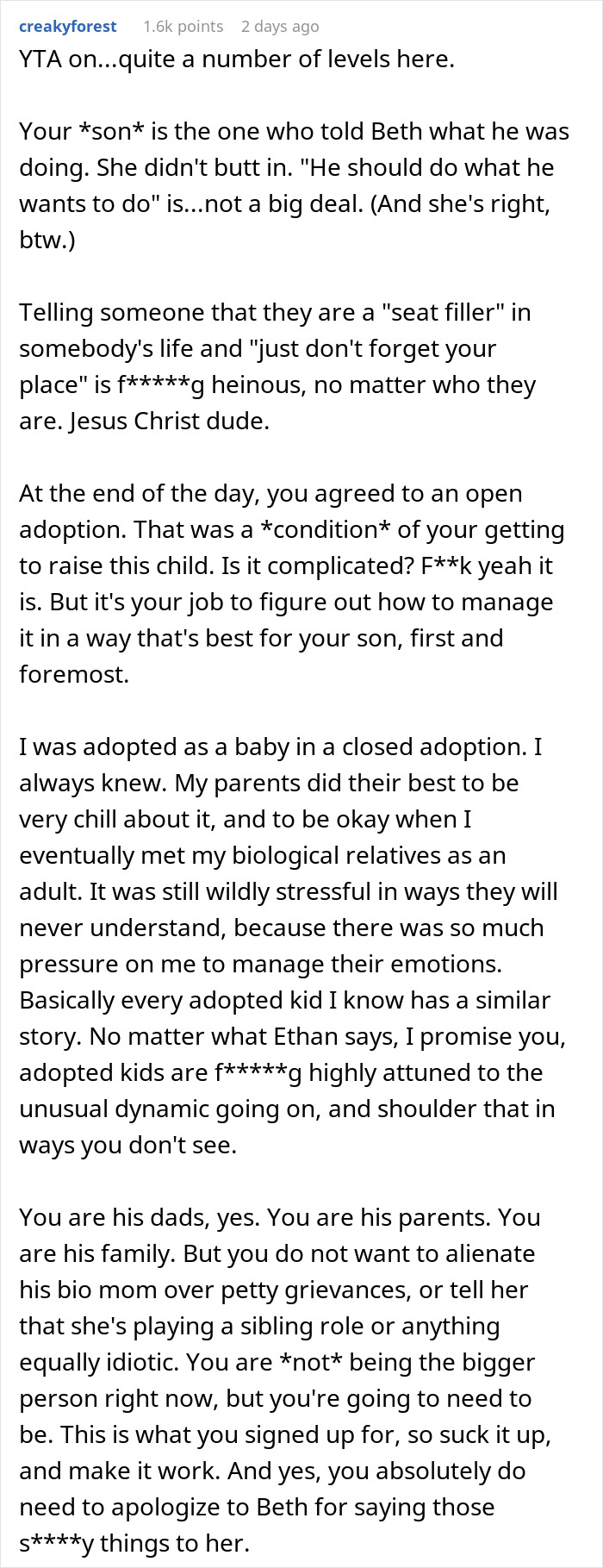

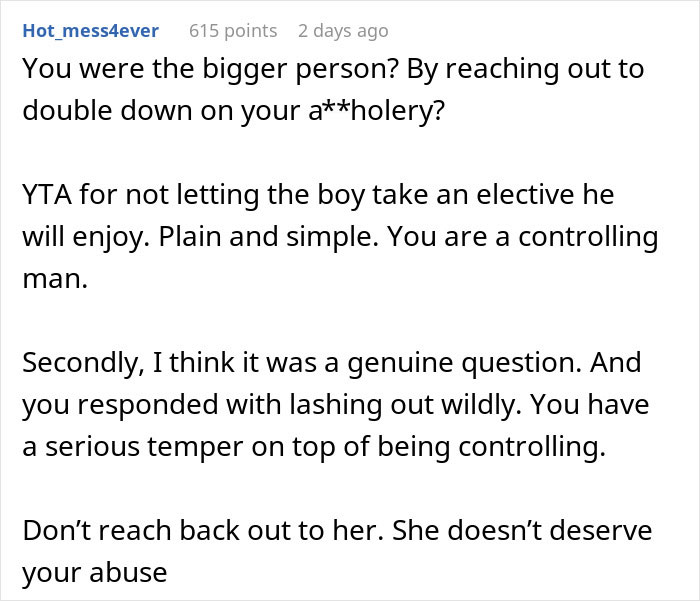

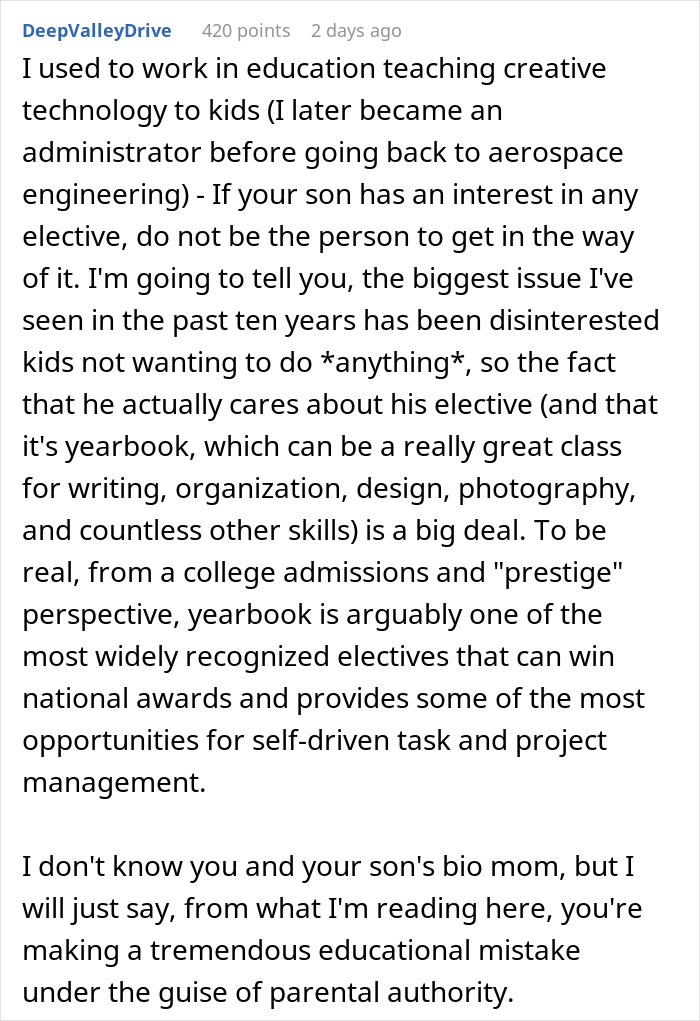
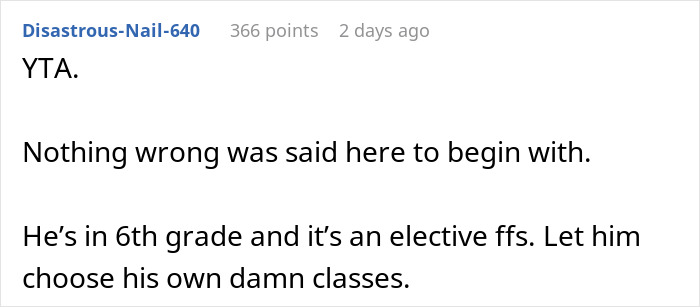
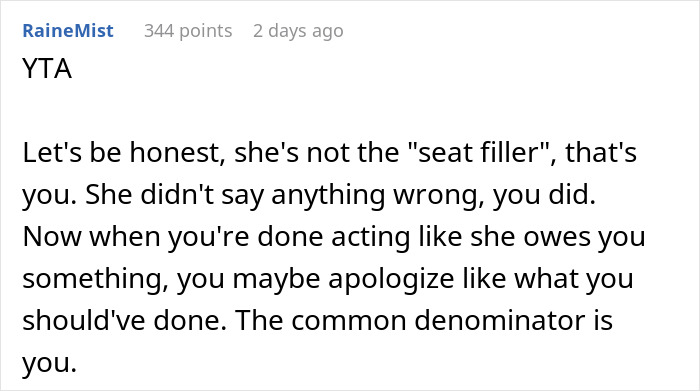

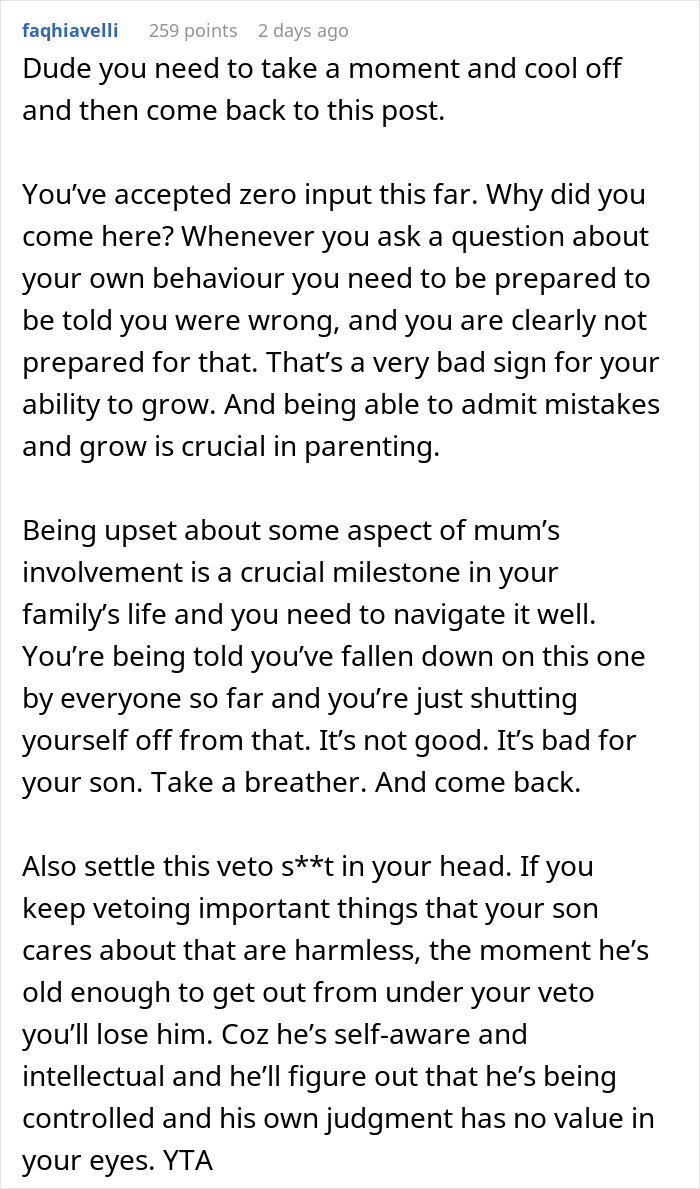
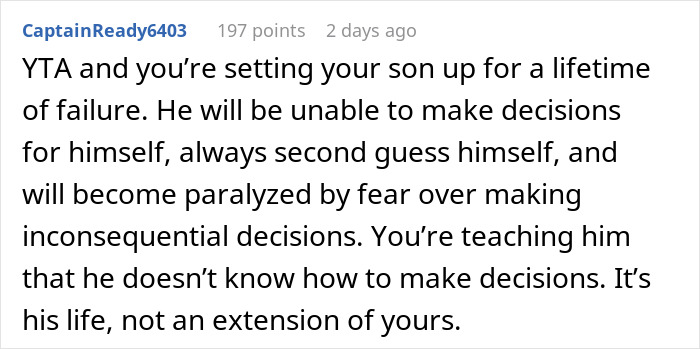
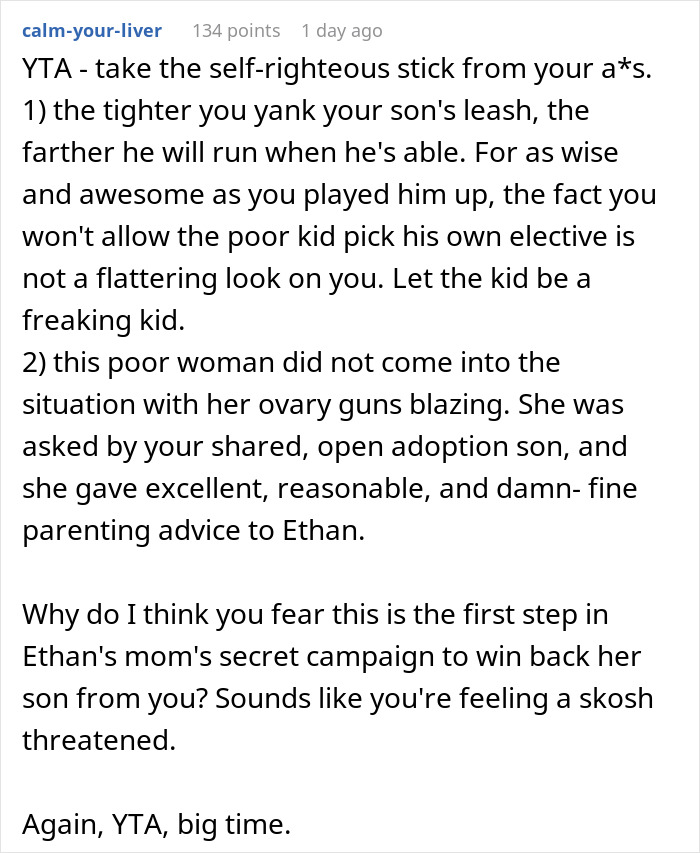

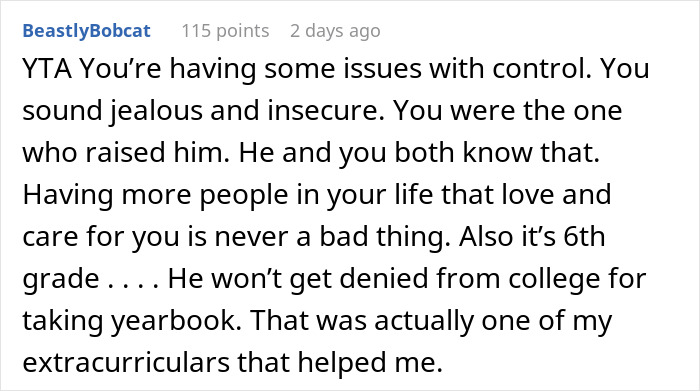

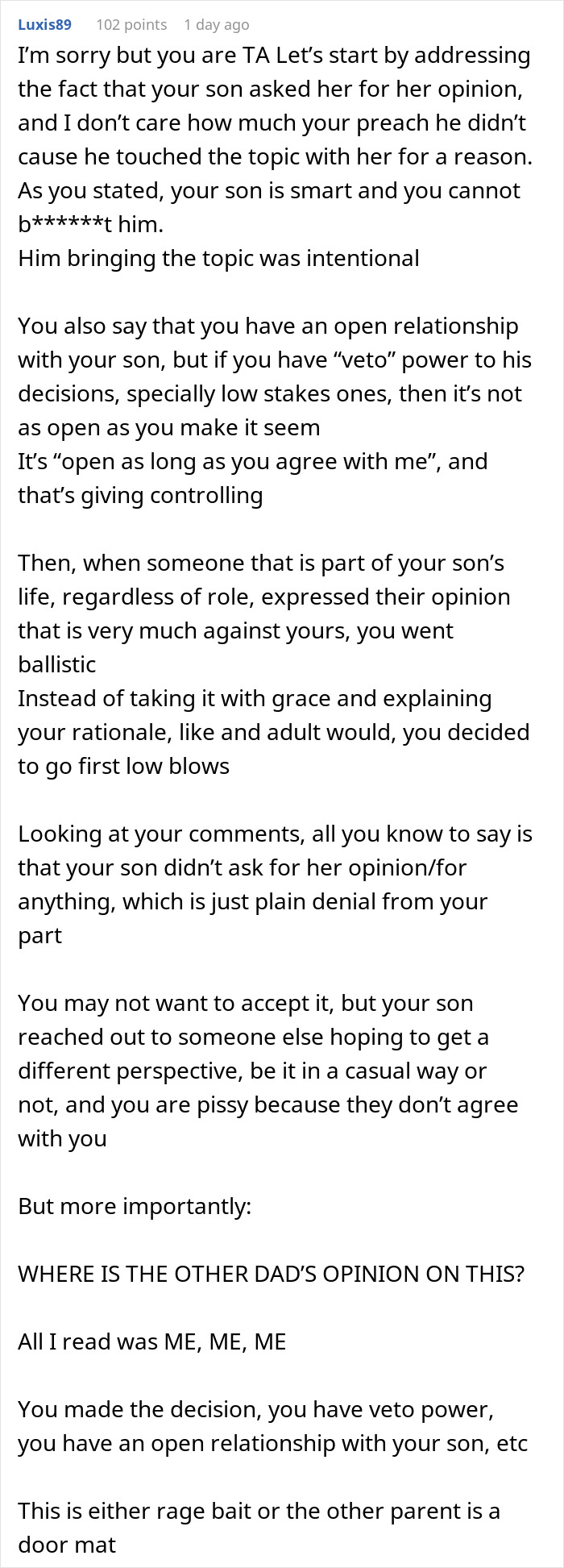
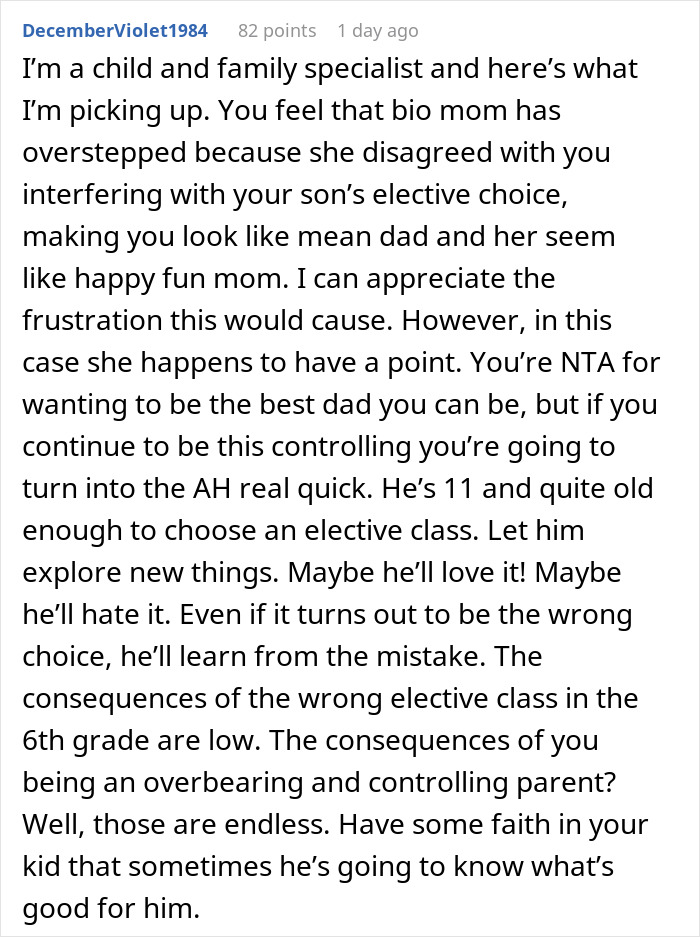
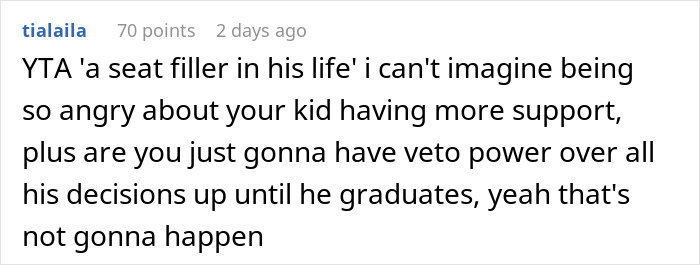
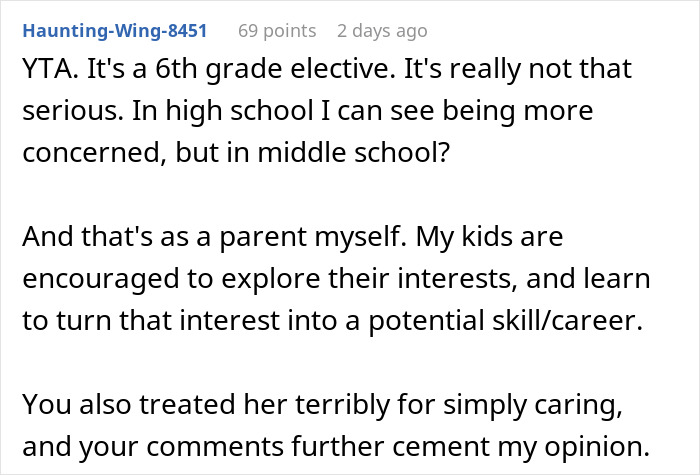
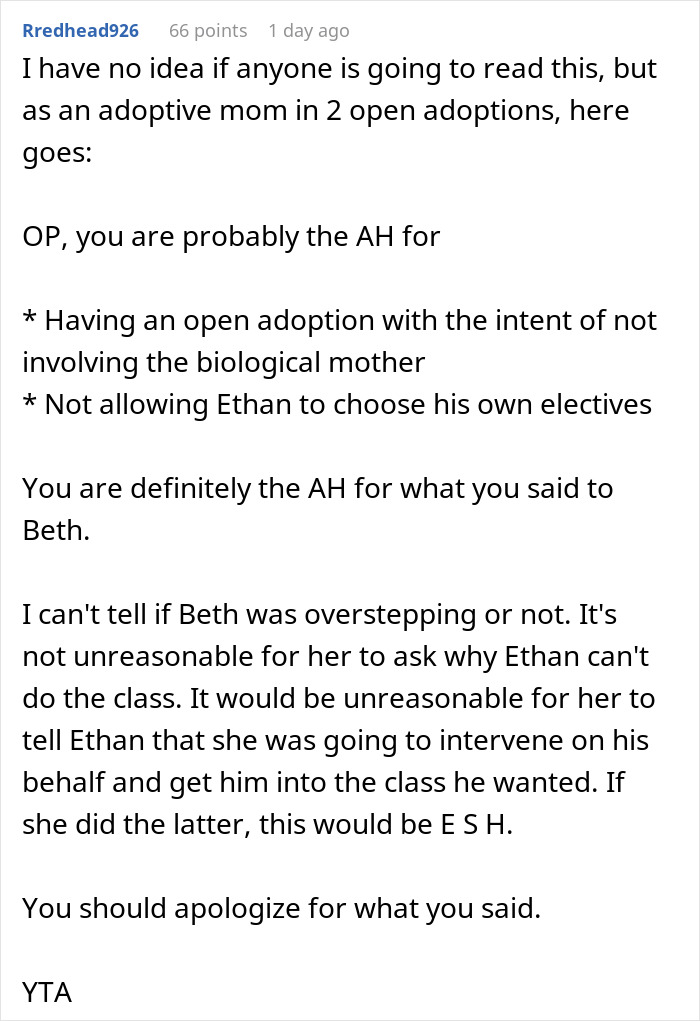
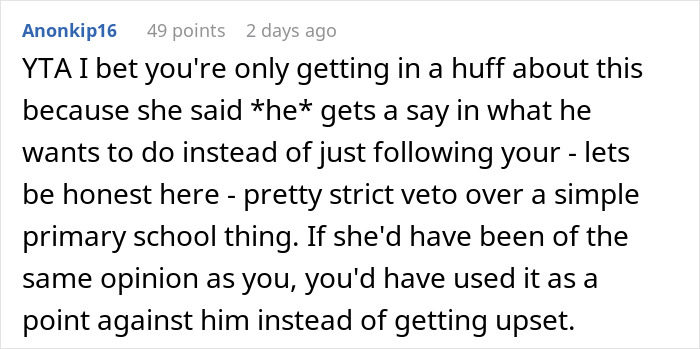
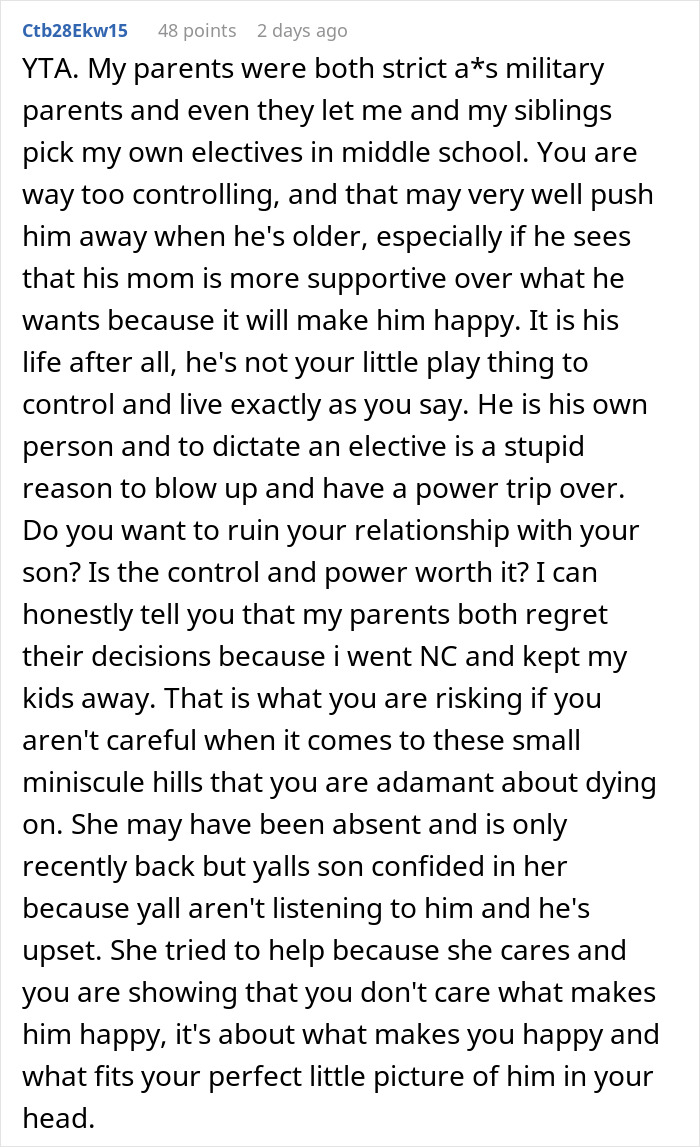
Though, some believed that he was right to act the way that he did
